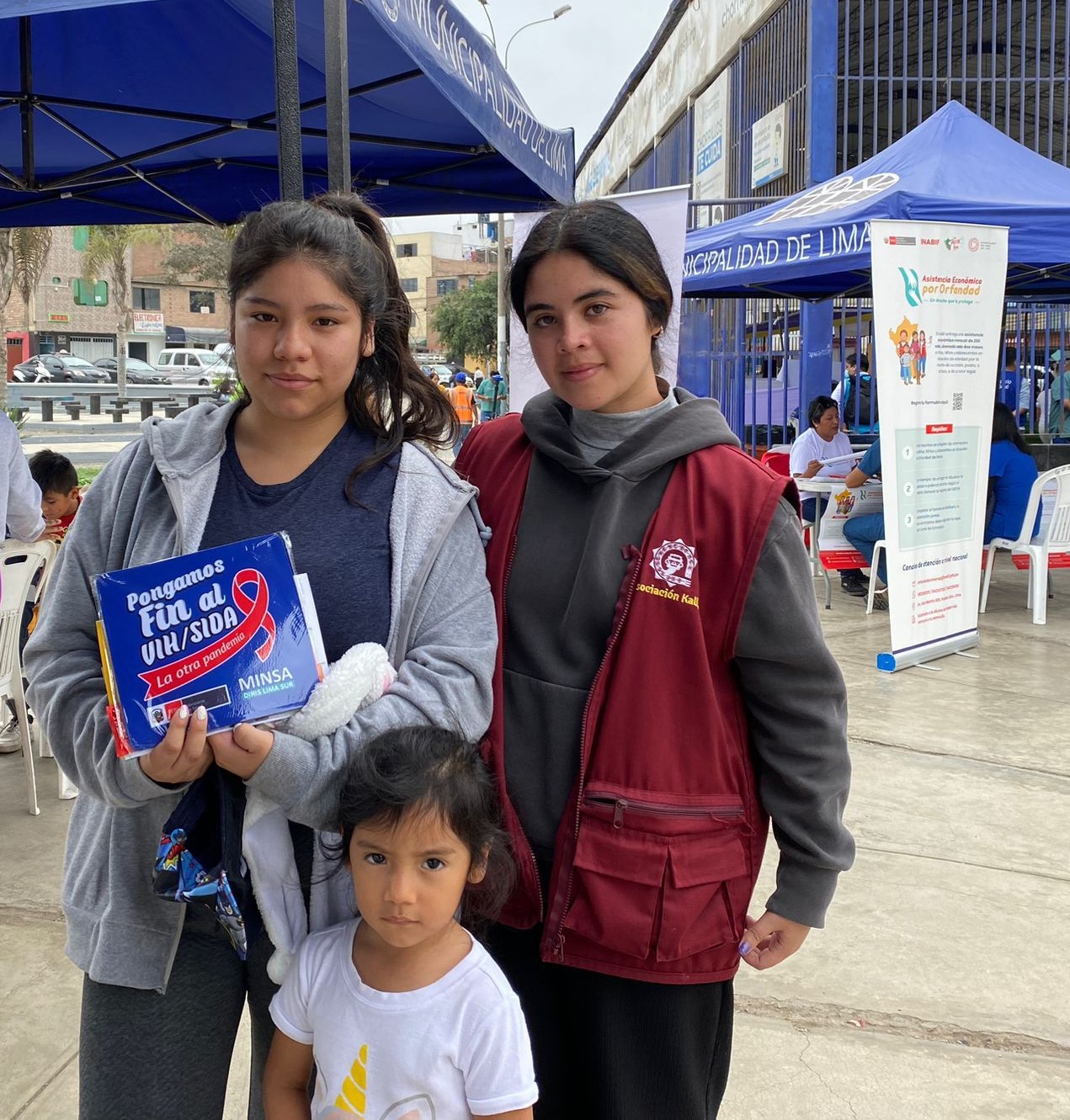CATALYST
Alumni Magazine of Cuso International
Spring 2024
Supporting Economic Opportunities
In this issue, you will read about farmers in Cameroon learning new skills as they adapt to climate change and help ensure their long-term livelihoods; programs helping women, youth, victims of conflict, and Venezuelan migrants start their own small businesses; and our work in Benin helping raise awareness of menstruation hygiene. These stories highlight how the Cuso International team, our partners, volunteers, and alumni are changing lives for the better in communities around the world.
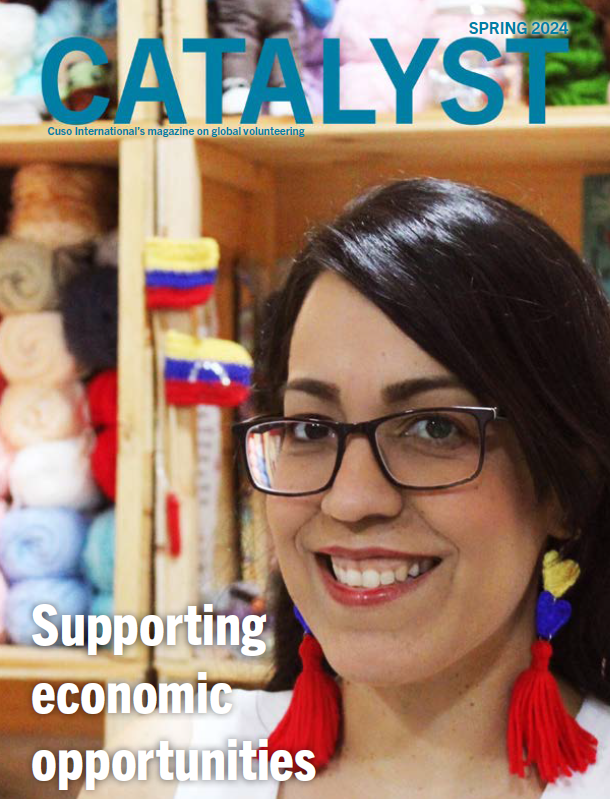
Message from the CEO
Greetings,
In this issue of Catalyst, we are highlighting the achievements of economic migrants in Africa and Latin America. We invite you to read their stories and rejoice at their successes. Whether by learning new skills, starting their own small business, or developing new partnerships, we have seen how Cuso International program participants, women and men alike, are becoming more resilient to changing economic conditions. Helping build that capacity in the communities where we work is one of our top strategic priorities.
In these pages, you will read about a Cameroonian refugee who has started a new life in Nigeria and is now assisting other Cameroonian refugees. Earlier this year, we celebrated our Sustainable Colombian Opportunities for Peacebuilding and Employment (SCOPE) project, which after nine successful years concluded at the end of March. The program has helped thousands of women, youth, victims of conflict, and Venezuelan migrants find formal employment. We know you will enjoy that story!
You will also find articles about our work in Peru, where women are recovering their knowledge of traditional Andean medicine, while also increasing their family income; programs in Benin that are raising the awareness of menstruation hygiene; and about girls and women in Ethiopia who are receiving academic and financial support to pursue their educational goals.
As International Refugee Day (June 20) approaches, we reiterate our commitment to working with local governments, the private sector, and community partners to improve the economic and social conditions of migrants around the world.
Our dedicated volunteers and alumni make this work possible.
That is why, on behalf of the entire Cuso International family, I want to express our immense gratitude for your ongoing support as we continue this journey to build a more equitable future for all.
Thank you, and happy reading!
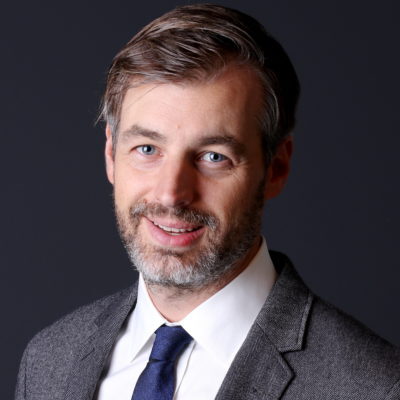

Nicolas Moyer
CEO, Cuso International
FEATURE STORIES
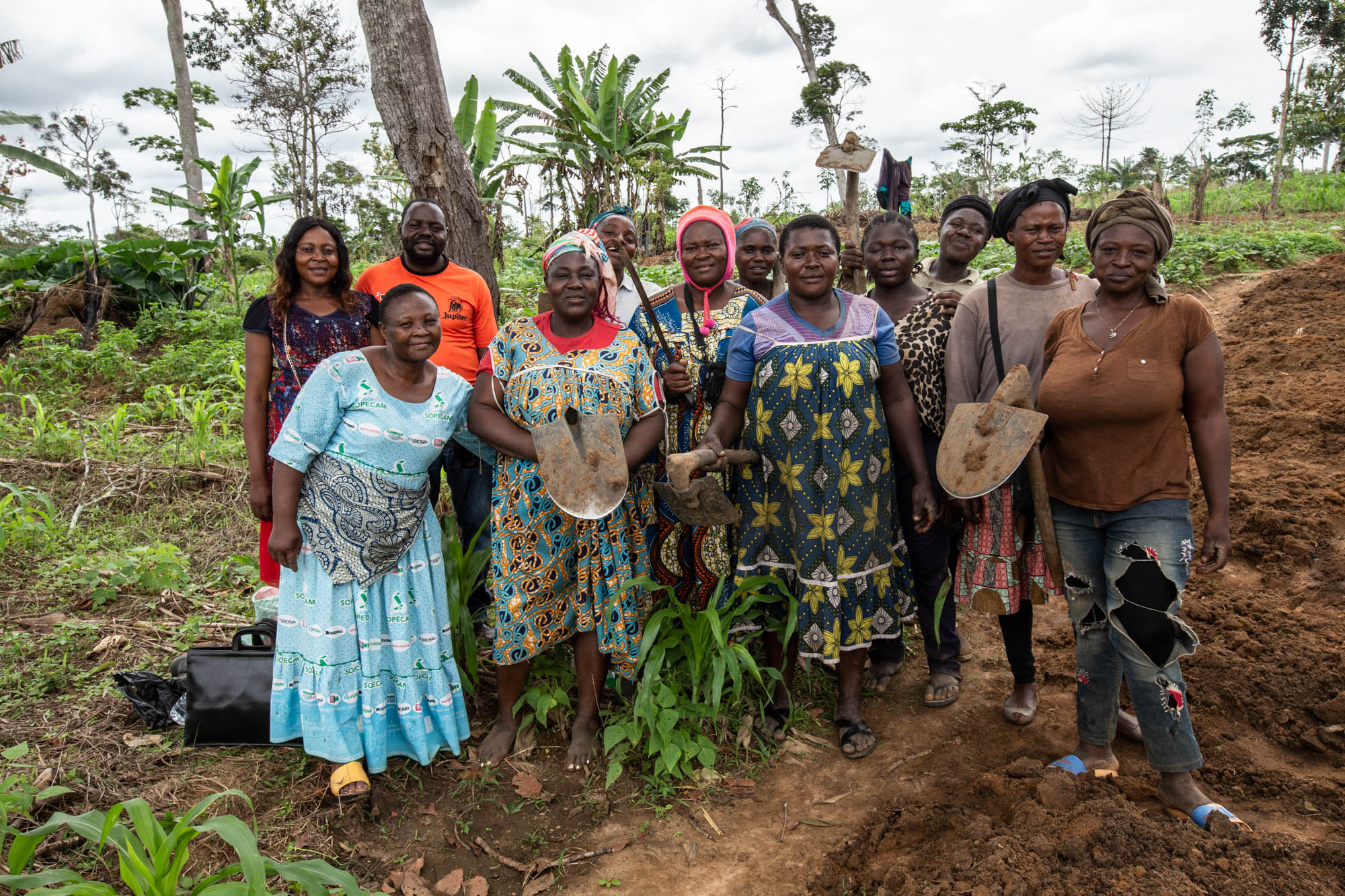
Supporting farmers to ensure long-term livelihoods and food security
A program in rural Cameroon is working with a cooperative of Indigenous farmers to produce crops and adapt to climate change.
Women in Peru strengthen their knowledge in traditional Andean medicine and increase their family income
The Quechua women of the Chari community are recovering their knowledge of Andean medicine and traditions, while also revaluing this knowledge towards community tourism.
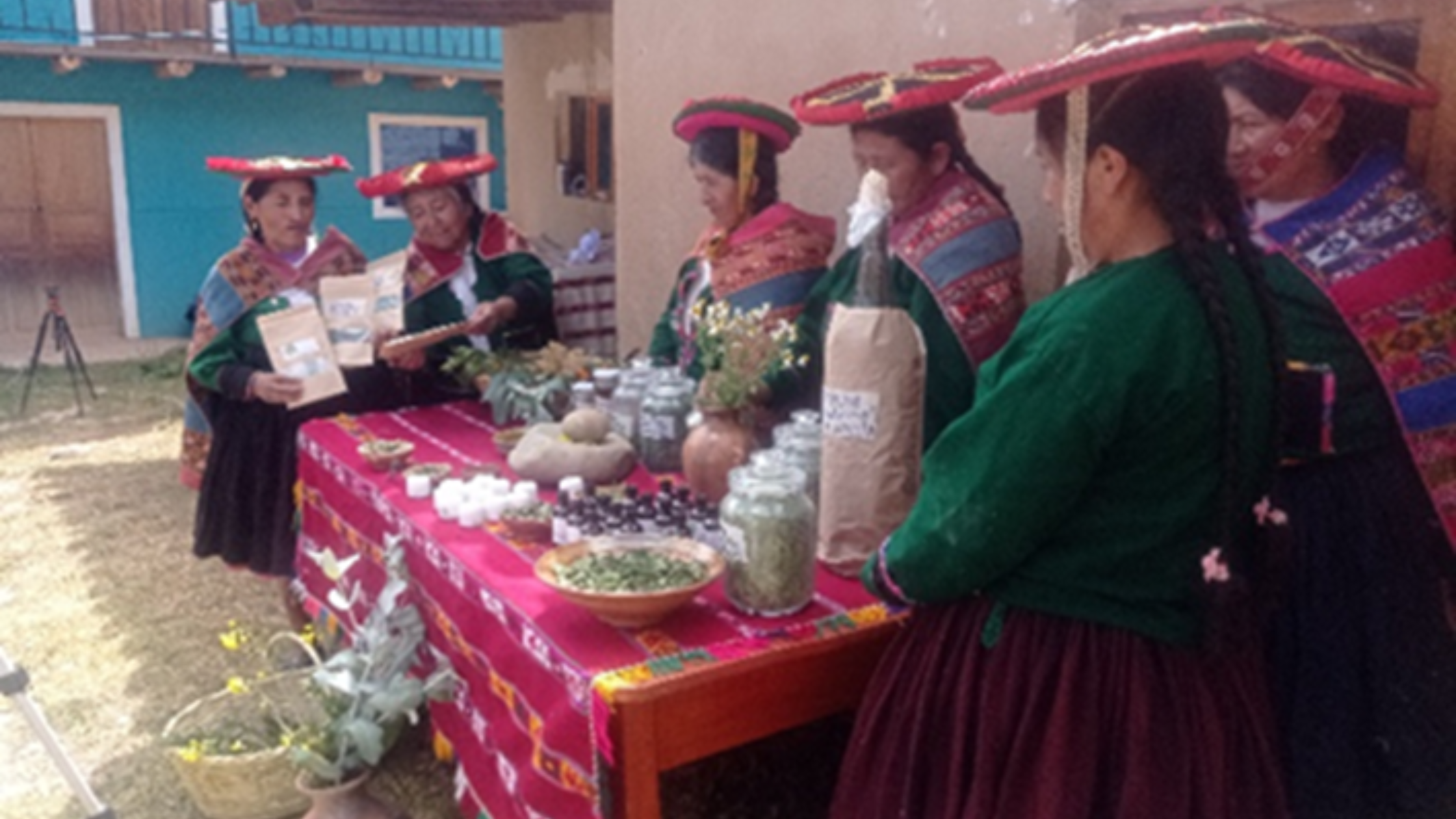
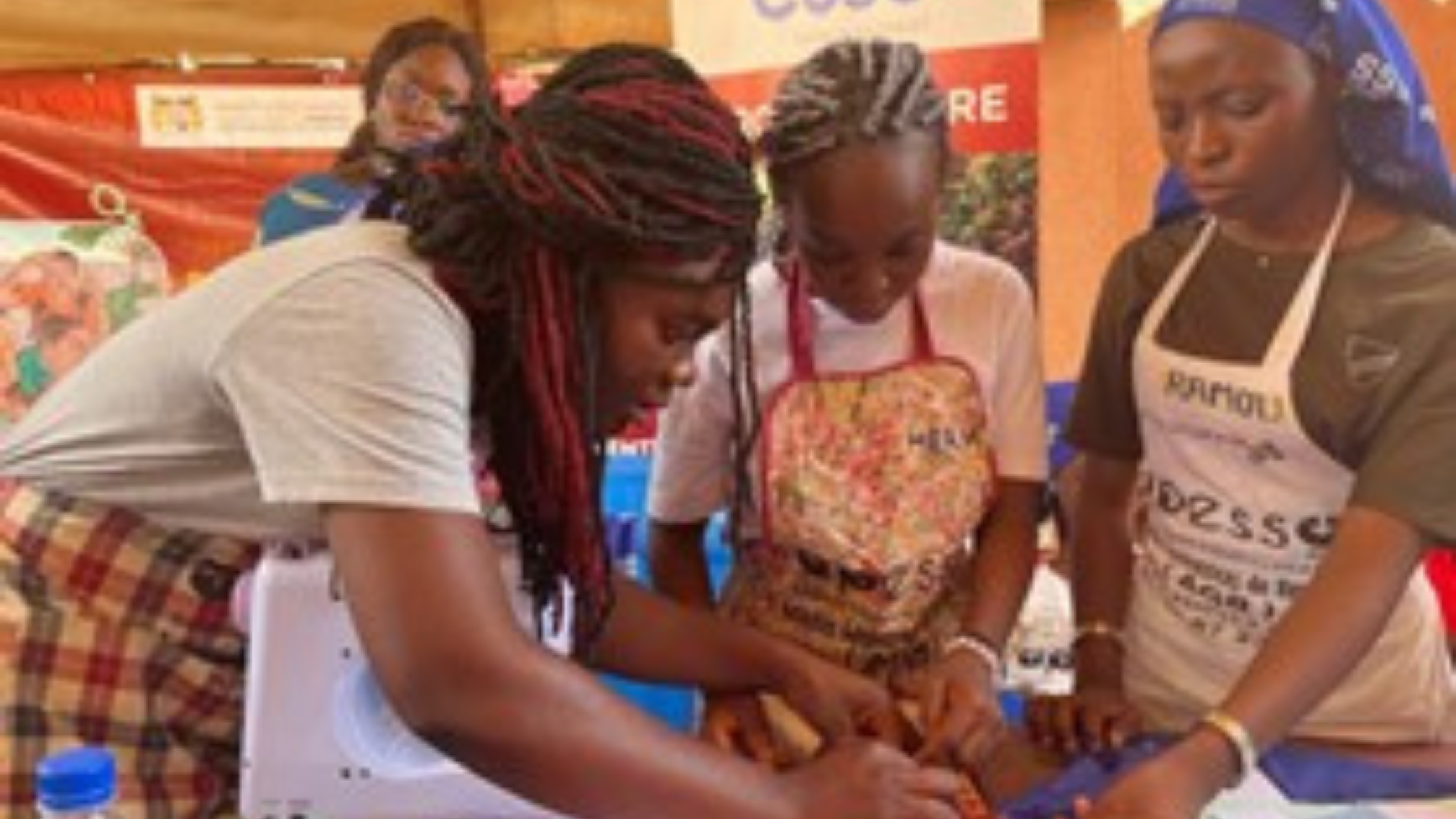
Training helps increase awareness of menstruation hygiene in Benin
Puberty can be a frightening and confusing time for any girl, especially when the topic is considered taboo. Fortunately, one program in Parakou, Benin is trying to change that.
Gender equality program in Ethiopian schools turns Sebrina into an aspiring lawyer
Despite a difficult start to high school, 18-year-old Sebrina walked across the graduation stage to cheers from her family this spring.
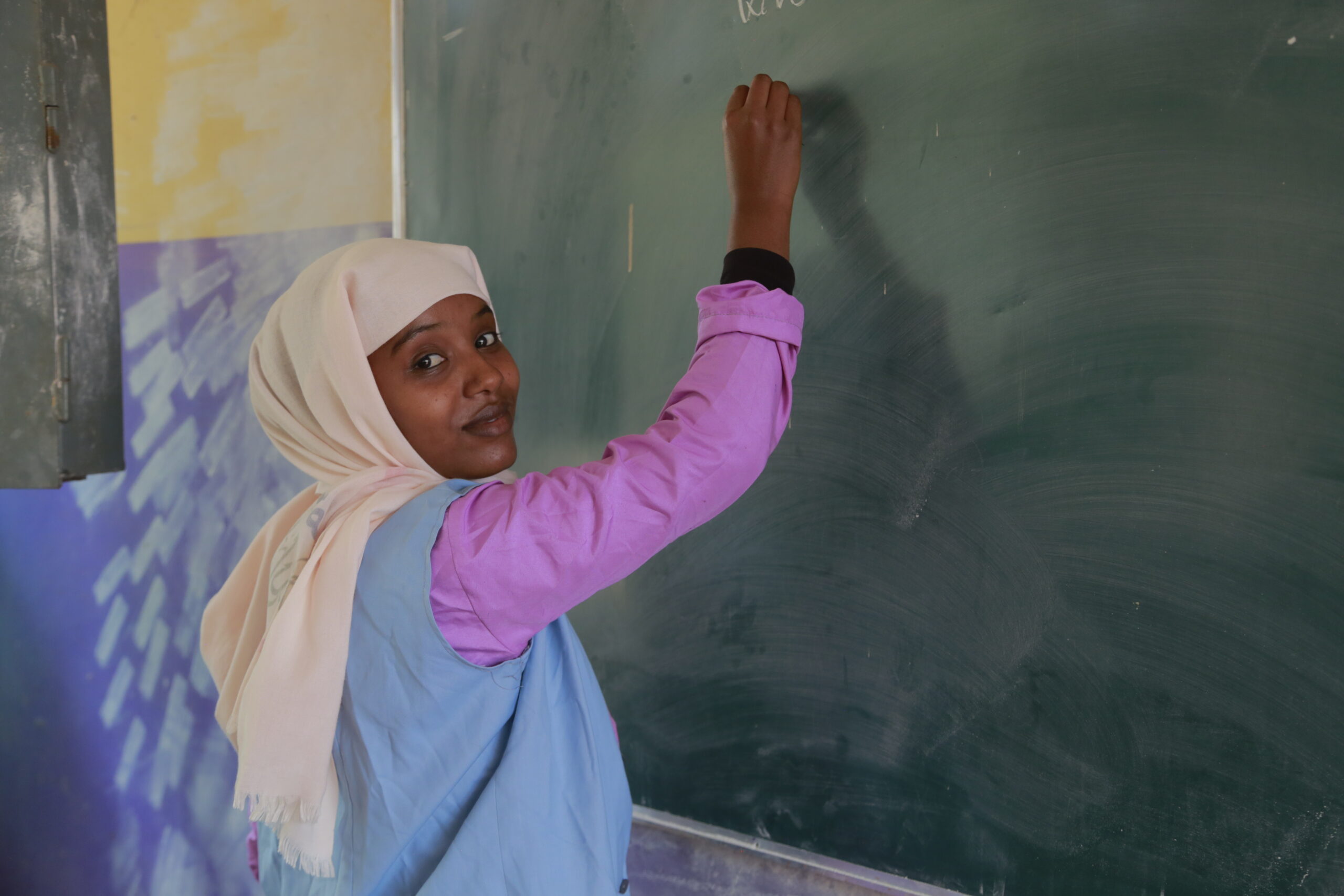
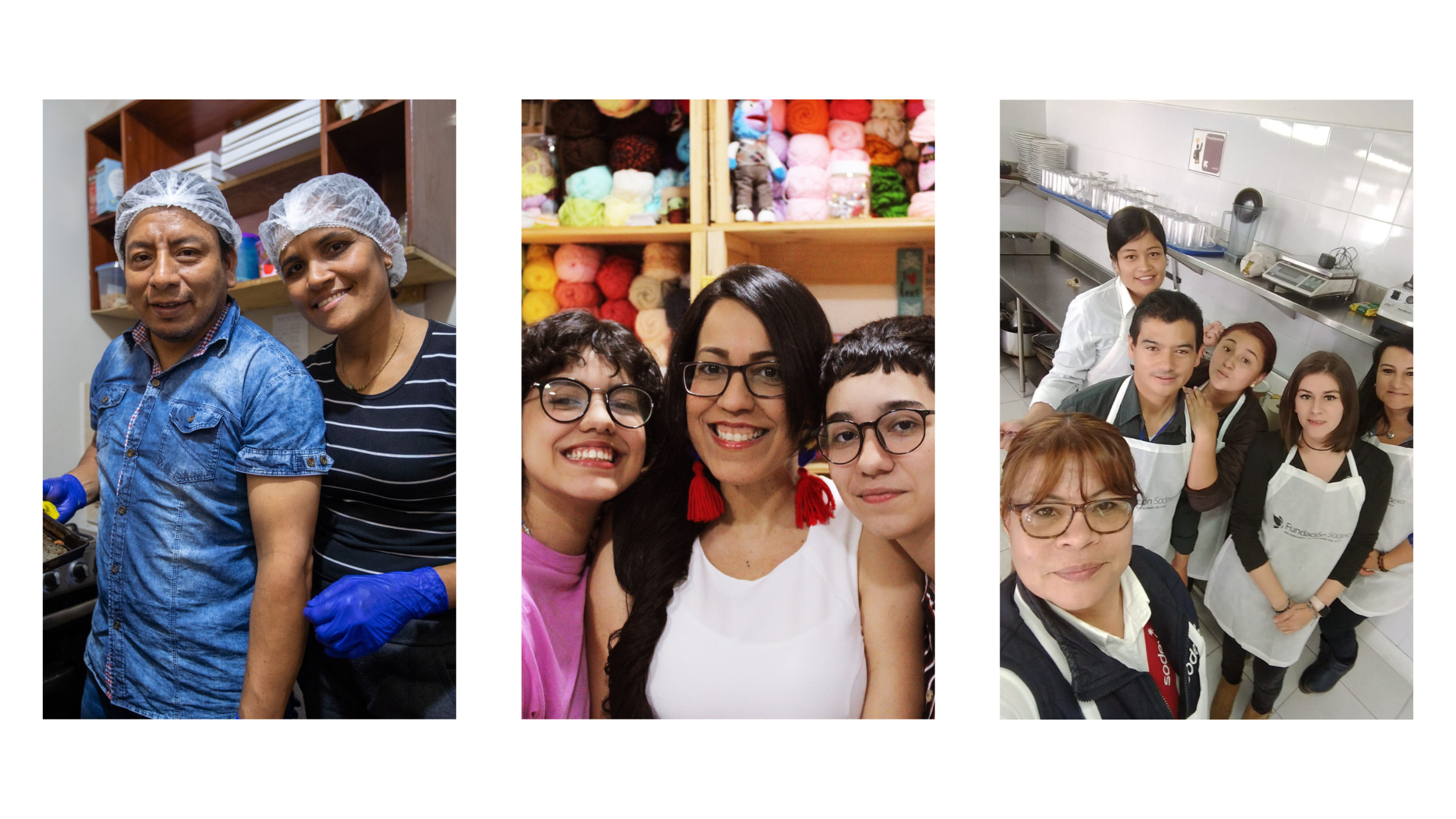
SCOPE project wraps up after nearly a decade supporting economic opportunities in Colombia, Peru, and Ecuador
After nine years helping women, youth, victims of conflict, and Venezuelan migrants find formal employment, Cuso International’s Sustainable Colombian Opportunities for Peacebuilding and Employment (SCOPE) project will conclude at the end of March.
Program improves quality of life for young girls and boys in rural Colombia
For children in the mountainous village of La Marina, in Tuluá, Colombia, relating to their peers and their family environment can be difficult. An increase in gender-based violence and the presence of structural machismo is negatively impacting their quality of life. The rural community is also vulnerable to recurring armed conflict.
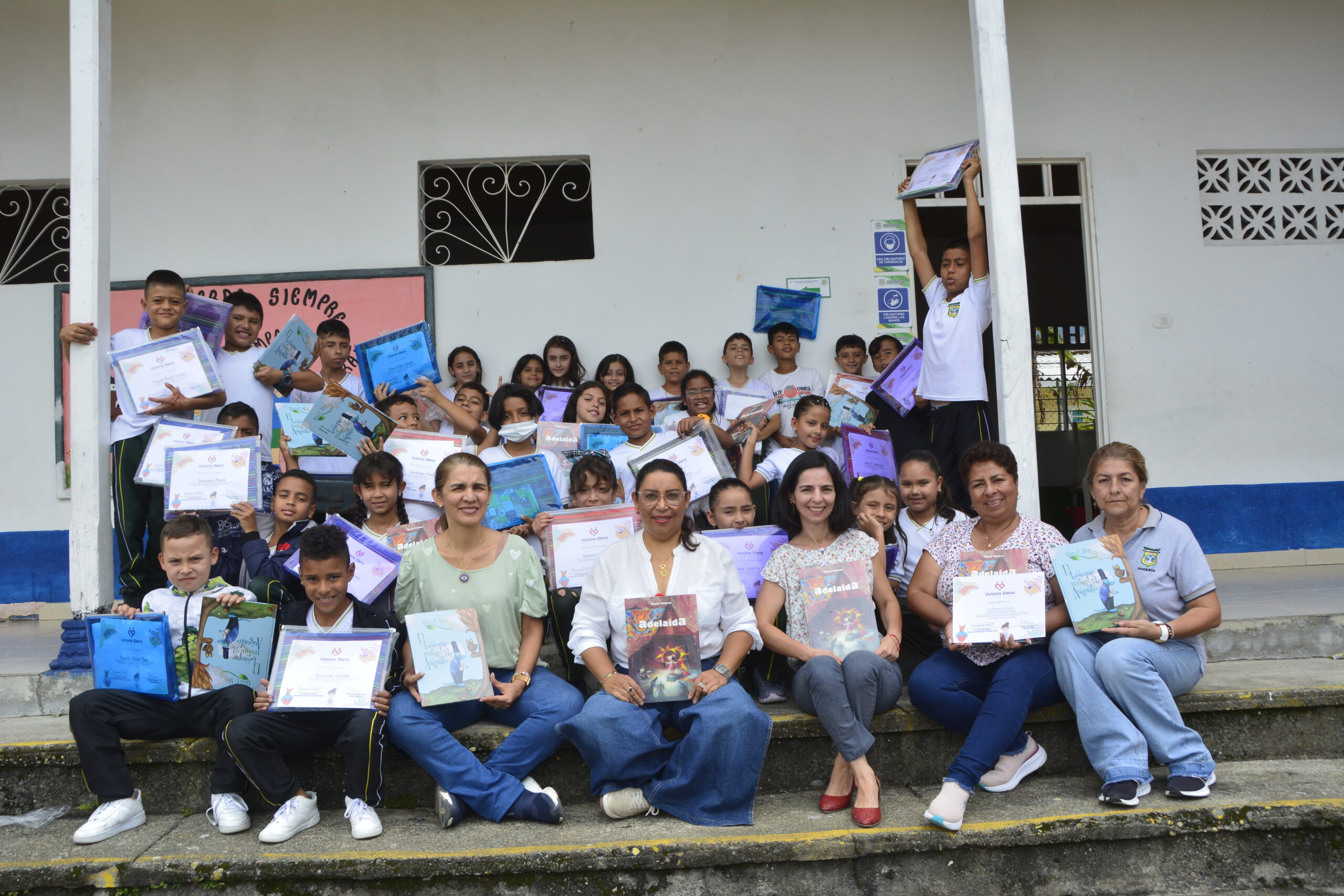
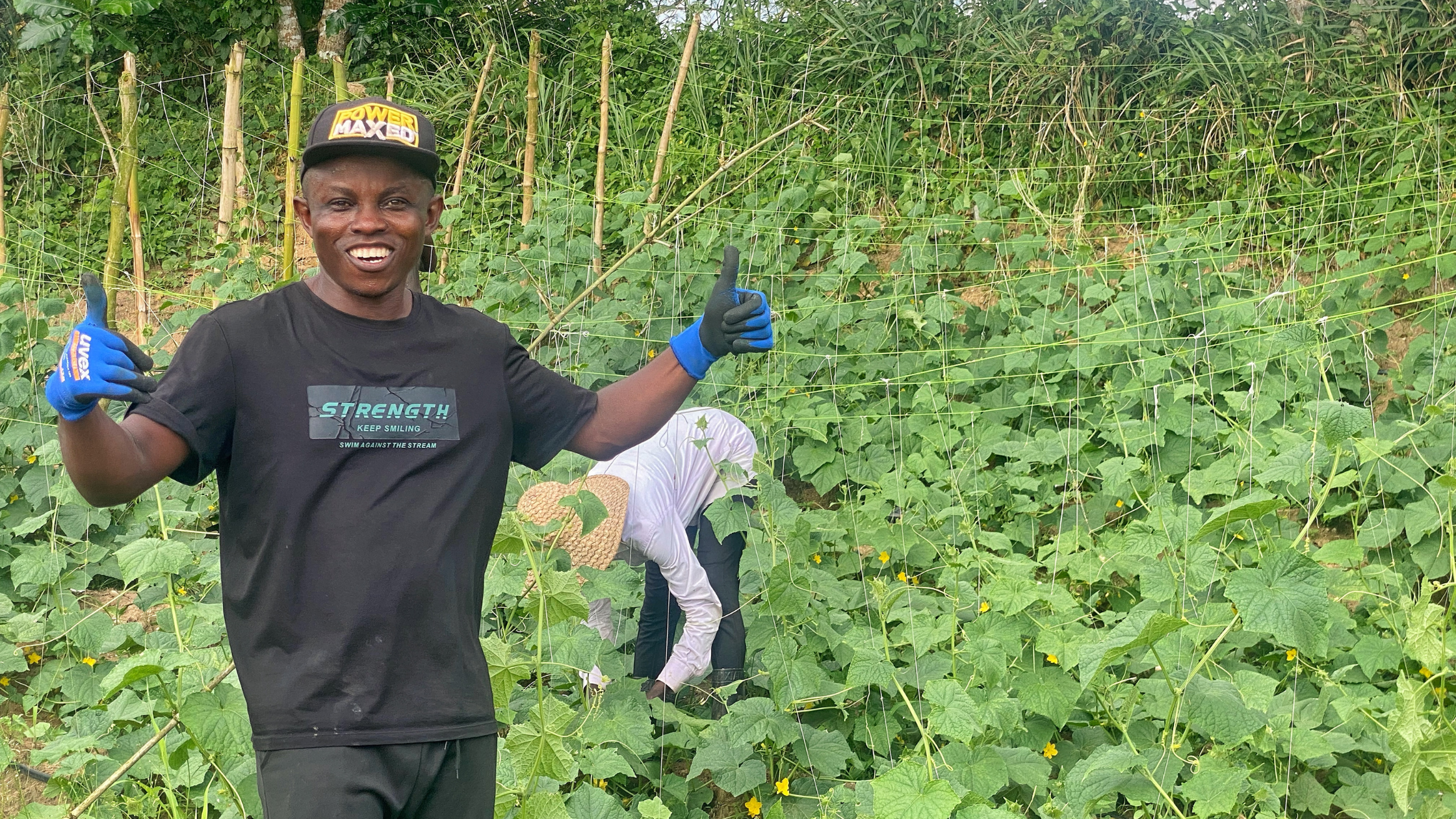
Nigeria: Helping Cameroonian refugees develop crops and skills
The ongoing conflict in Cameroon’s western region has caused thousands of people to flee their homes to seek safety, stability, and to start a new life in neighbouring Nigeria, including Albert Asu.
SPOTLIGHT
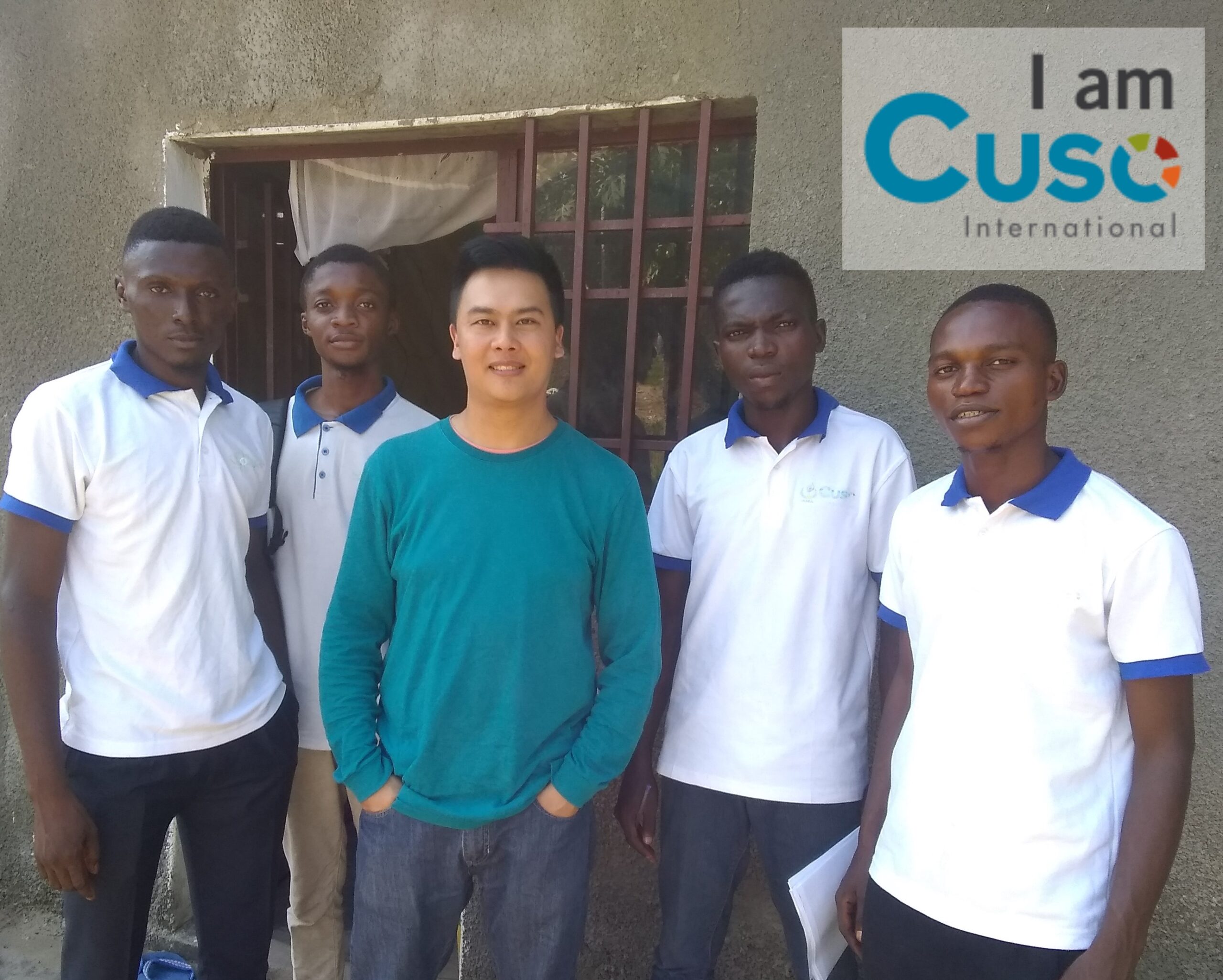
#IamCusoInternational
Leandro Lima
Benin
#IamCusoInternational
for the passion and dedication we bring to our work. I've had four mandates with Cuso International and I'm very satisfied!
Leandro, based in Vancouver, has been volunteering with Cuso International partner organization Carrefour Jeunesse Afrique in Benin. Working as a leadership and mentoring consultant, Leandro helped train and mentor young people. He also presented the potential dangers of plastic in the environment.
The results of his work have been noticeable. Recently he drew up an environmental charter to be placed in every office at the organization’s centre. While it was agreed the centre should be a plastic-free environment, they also recognized the need to set an example for young people.
“To round off my term of office, I donated three mango trees to be planted around the centre. It was a great experience, as the student carpenters and I worked as a team. I reminded them of the importance of taking care of nature,” said Leandro.
"Thank you to Cuso International for opening its doors to me and giving me the opportunity to serve four terms with you!”
#IamCusoInternational
Elizabeth Ndenecho Yunga
Nigeria
#IamCusoInternational
because I love to teach people how to fish and not give them fish to eat. I am thrilled with Cuso’s approach: building the capacity of partners who live the reality of the vulnerable population at the grassroots level. So that they can better support and work with them to meet their needs. I believe that acquiring new skills is important, but more important is applying them practically in our work.
Elizabeth, based in Montreal, is volunteering as a gender equality and social inclusion (GESI) advisor with Cuso International local partner Education as a Vaccine (EVA) in Nigeria. She has been training staff to be more aware of the importance of gender assessment and addressing the root causes of gender inequalities in their projects.
“I felt gratified when Grace, one of the trainees said: “I did some gender training before, but after these sessions, now I am able to conduct a gender analysis effectively. I have put into practice the knowledge gained in writing proposals. In the last two proposals I contributed to, I analyzed gender issues in the communities and ensured that groups most affected were prioritized in the interventions. In one of the proposals, it was asked how the project will consider gender in the implementation. Responding to this question was easy because of the knowledge I gained from the training….” I am glad to contribute indirectly to the change EVA is making in young girls and boys’ lives through Grace’s interventions.”
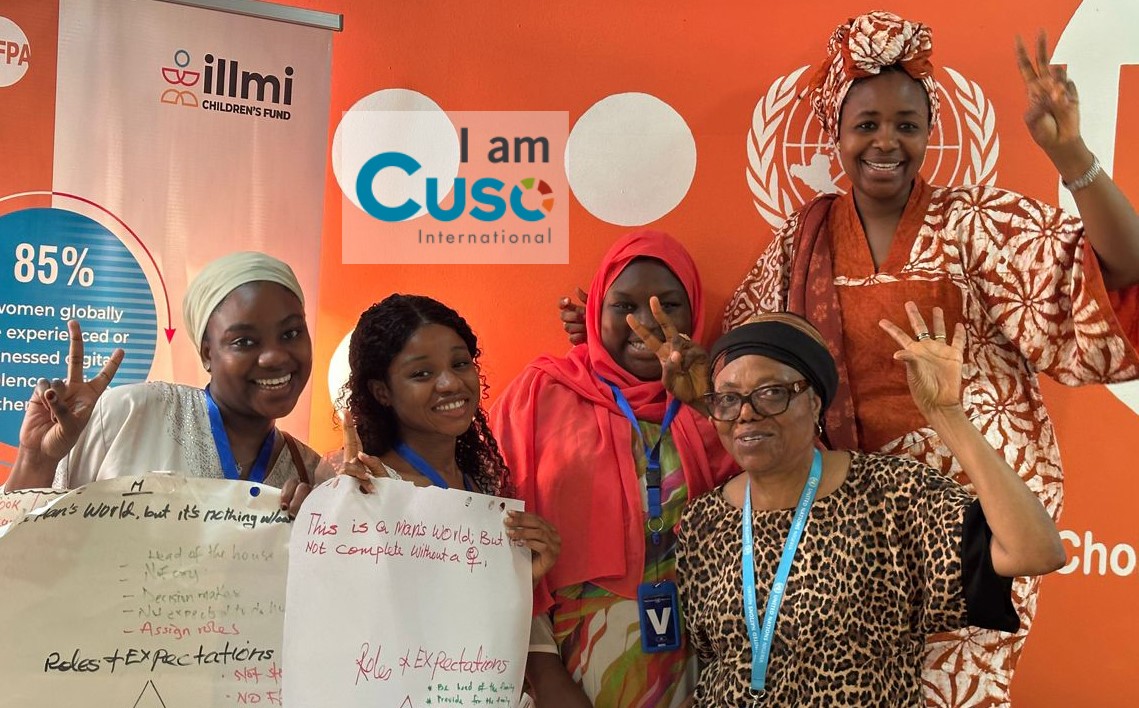

Mary Bomford
At the age of twenty-one, Canadian teacher Mary Bomford and her husband of just eight weeks embarked on a journey that would directly alter their careers, their marriage and their family. That journey would trace an invisible but palpable thread through the rest of their lives.
Enticed by dreams of adventure, in 1969 Mary and her husband Larry moved to Lundazi, a town near the eastern border of Zambia to work as CUSO volunteers in the secondary school there. At the time, the country, a nation newly independent after decades of colonialism, was looking for volunteers to fill the teacher shortage until enough young Zambians had completed their teacher training. New to marriage, teaching and Zambia, Mary and her husband embarked on a profound journey connecting them to the country, their students, and their colleagues. Zambia gave them the experience of a second home, filled with moments of delight in the beauty of the area and enriched by the culture of the Zambian people.
Years later, Mary reflects on her experiences of the landscape, culture and people in the hopeful time following independence. Red Dust & Cicada Songs is an exploration of the deep and lasting connection she still feels for her time in Zambia.
About the author: Mary Bomford has written a series of family histories including Lou Hamel: CPR Telegrapher, held in the Camrose Railway Museum, and Yvonne’s Yesterdays held in the archives of the Sisters of St. Ann, Pacific Northwest. Mary has volunteered for Amnesty International and raised funds for African AIDS Angels. She worked in Special Education for most of her teaching career. As an early-primary reading specialist, she wrote a series of personalized beginning readers for her students, and in retirement, has written for her grandchildren.
You can shop for the book at local bookstores in Canada on the Caitlin Press website. The book is also available at Barnes & Noble and Waterstones.

Neill McKee
Neill McKee takes us on an entertaining journey through the developing world from 1970 to 2012. His memoir is filled with compelling dialog, humorous and poignant incidents, thoughts on world development, vivid descriptions of people and places he visited and worked in, and over 200 images (ebook and hardcover in color), all of which bring readers into his "University of the World." The story starts when he becomes a "one-man film crew," documenting the lives of Canadian CUSO volunteers working in Asia and Africa as teachers, medical doctors, nurses, engineers, agriculturalists, foresters, technicians, and a biologist. He learns the craft of filmmaking and meets and marries Elizabeth "on the hoof."
Throughout the short chapters and in a brief epilogue, McKee reflects on the long-term impact of the projects he documented and of his media creations. This is a book for anyone interested in world affairs and development, film and multimedia production, the use of media for behavior and social change, exotic travel, and interesting career choices.
Read more about the book and where it can be purchased on Neill's website.
LIVES LIVED
Paying tribute to incredible alumni and their vital contributions
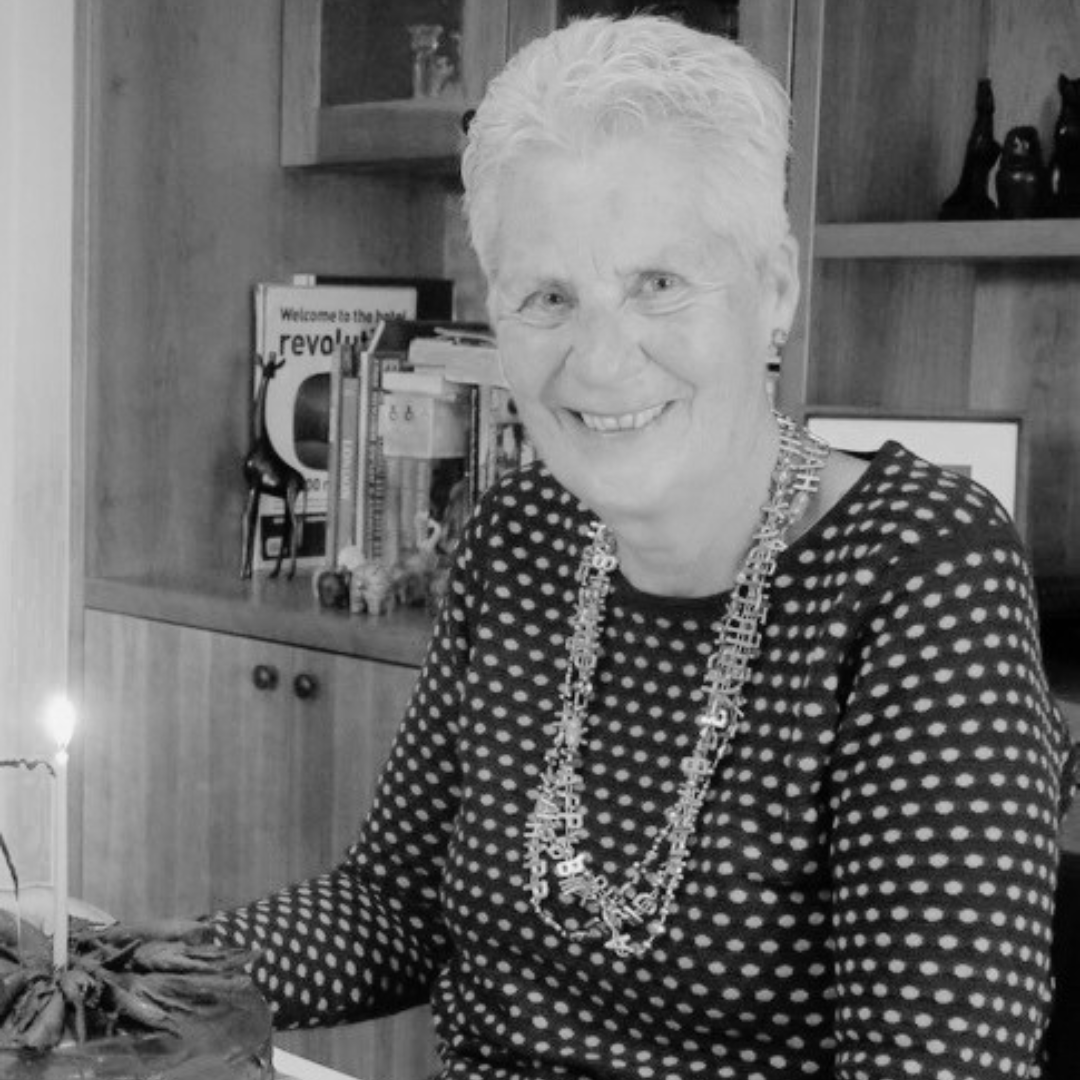
Sharilyn (Sharry) Burns
Sharry was born and raised in Edmonton, the daughter of Jeanne Hipkin Burns and David Burns.
After completing her studies in education at the University of Alberta, she taught in Sedgewick, Alberta for several years before applying to CUSO in her mid-twenties. She was posted in Papua New Guinea from 1976 to 1978 where she taught at Wewak High School.
Upon her return to Canada, she lived in Calgary and was an ESL teacher with the Calgary Board of Education for some twenty-five years, the balance of her teaching career. She was highly regarded by her students and her colleagues.
Upon retirement, Sharry first lived in Vancouver and then moved to Victoria. She passed away suddenly in Victoria in January 2024 at the age of 72. She is survived by her spouse Susan See, her best friend Ruth McMurtry (PNG 1975-1976), her brothers Rod and Tim, nieces Ruth and Beth and their families and nephew Mark, several CUSO Returned Volunteers she met through the CUSO/SAIT office in Calgary, and many gay and straight friends in Alberta and British Columbia.
Donations in Sharry’s memory may be made to Cuso International
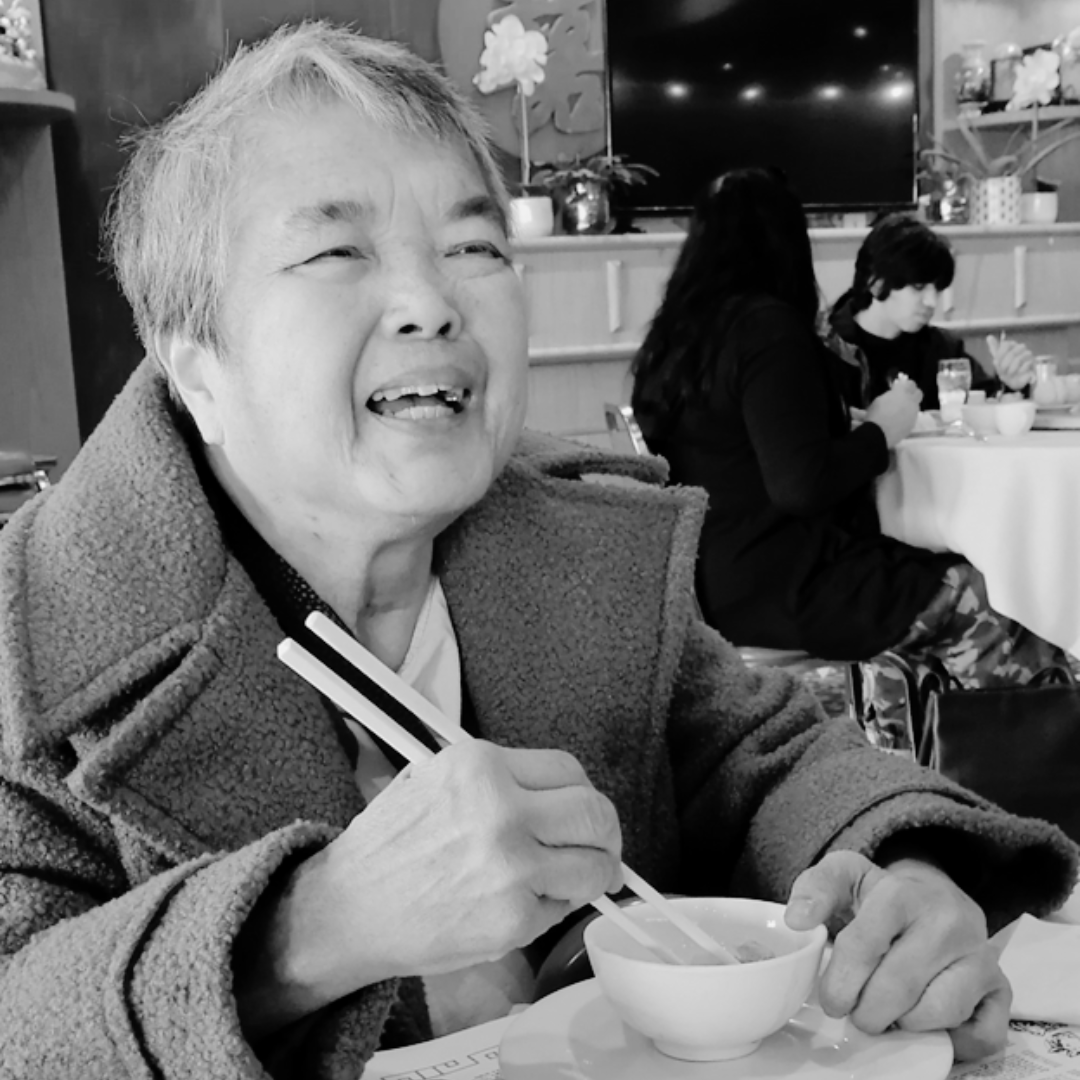
Rosita Ulrich
Rosita died in her husband, Alvin’s arms, from cardiac arrest on the evening of November 8th after returning home from dialysis.
Rosita Mediavillo Ulrich was born September 15, 1948, in Pasig, Metro Manila, Philippines. She attended the same school for 12 years and hence had many long term classmates who always kept in contact with her. She finished a degree in Education and taught for five years at Rizal High School.
Rosita then went to teach Home Economics and English in Papua New Guinea for six years at Kerowagi, Kainantu and Muaina Secondary Schools. While there she met Alvin Ulrich who came as a CUSO volunteer to help set up village cardamom, coffee and chili plantations. After 15 months, they married in Manila, worked another year in PNG and then came to Canada where Alvin completed his MSc degree in Agricultural Economics.
For five years, Rosita volunteered by teaching English at the Open-Door Society and worked part-time for Immigrant Women of Saskatchewan. She enjoyed staying at home, visiting friends, gardening, cooking huge meals and entertaining visitors with her stories, funny questions and comments and laughter. She travelled extensively in Europe, Africa and Asia by herself and with Alvin, who had consulting jobs overseas, including working in Zambia for two years.
About 10 years ago Rosita was diagnosed with kidney disease and had daily dialysis at home or tri-weekly at the Kidney Center. In spite of this, she still travelled and continued to brighten people’s days with her smiles, humour, conversations, food, flowers and stories.
Rosita leaves to mourn her loving husband, Alvin, a brother, Dr. Rene Mediavillo (Eileen), several brother and sister-in-laws (Paul and Judy, Florian and Zinnia) and 12 nieces and nephews. She was predeceased by her parents, two brothers and their wives.
Do you want to make a meaningful and lasting impact in the world? Are you fluent in English, French, or Spanish?
If you have the following skills, Cuso International invites you to join us as a volunteer and be part of a remarkable journey toward creating positive change in communities around the world. Bring your expertise in various areas, including Gender Equality and Social Inclusion, Program Development and Evaluation, Fundraising, Communications and Marketing, Business Development, Education, and Environment, and embark on an adventure of a lifetime.
